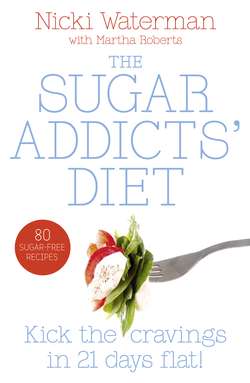Читать книгу Sugar Addicts’ Diet - Nicki Waterman - Страница 29
What the Experts Say ‘It’s more Emotional than Physical’
ОглавлениеMarie Reid, Professor of Nutritional Psychology at the University of Surrey, Roehampton, has written widely on sugar addiction. She says studies have failed to prove that sugary foods lead to physiological addiction, such as you can get with alcohol or drugs. Rather, it’s down to people making associations with certain feelings when they eat sugar. They may use it for comfort, for example, and if they’re denied it they can start feeling miserable.
Professor Reid says, ‘Research suggests that people are not addicted to sugar on a physical level but maybe on a psychological level. It comes from all the meaning we have around food – sugar is regarded as “forbidden” food. So if, from a very young age, there’s an association with that kind of food as a treat, something used as reward or punishment, they take that all the way through their life. A familiar pattern would be that good behaviour was congratulated with something like chocolate so chocolate is seen as a reward food. Or they may have been given it when something went wrong, like they hurt themselves. That then moves into comfort eating to cheer themselves up when sad or miserable, or a reward when they feel happy, or both.’
The food used for these purposes could just as easily have been something healthy like fruit. But Professor Reid says, ‘Sweet foods are often palatable, and humans have an innate preference for sweet foods – breast milk is sweet.’ She suggests that the ‘dependence-like addiction’ people so often have isn’t to sugar alone but rather to the combination of carbohydrates and fat – in other words, sugary, fatty foods such as cakes, chocolate and pastry. So as far as she’s concerned, there’s little evidence that an intense craving for sugar is down to anything physiological.
